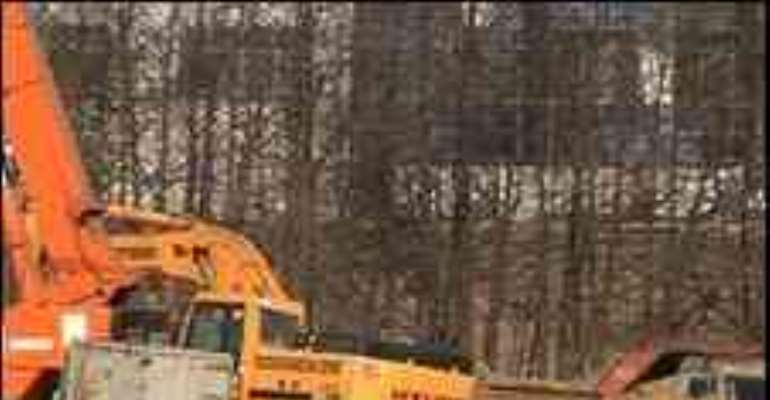RUSSIA CREATES ITS OWN SILICON VALLEY

It may not have California's weather, ocean views or coffee culture, but a Moscow suburb will be the site of Russia's version of Silicon Valley.
Skolkovo district has been selected as the site for a huge science park, where the government will invest billions of dollars to help boost the nation's technology industry.
It is a sleepy, rural area about 20 kilometres west of central Moscow, where wealthy Russians have dachas, or holiday homes.
The park will be built on land owned by Russia's ministry of agriculture near the village of Nemchinovo.
It is a small place where the action is limited. There is a bus stop and a kiosk selling newspapers and snacks.
Billionaire in charge
But Skolkovo will have some important attractions.
Tax breaks and other funding will be offered to selected companies.
Without government help, it is hard to get started
Natalya Kaspersky, the co-founder of Kaspersky Lab
The project will also be largely autonomous with its own water and power supplies – amenities that can often be frustrating to secure for Russian companies.
The project has powerful leadership. The Russian billionaire Viktor Vekselberg is in charge and he hopes that one day the region will produce Nobel Prize winners.
Also, big new business school is being built on the edge of Nemchinovo, with upmarket houses and flats nearby.
Konstantin Sonin, a professor of economics at the New School of Economics in Moscow, is optimistic about the project's potential.
But he also warns that “there is a danger that it will go the old Russian way – everything that is going to be built is going to involve a lot of corruption and bribery that will drive up the cost of everything”.
Necessary help
The hope is that, one day, Skolkovo will be the home of companies such as Kaspersky Lab.
The computer software firm is only one of a handful of international Russian technology firms.
Local residents are worried they could be priced out
Kaspersky Lab did not have government help when it started back in the 1990s.
But its co-founder, Natalya Kaspersky, thinks a technology park would help a new generation of entrepreneurs.
“We do not have a long history of business experience here in Russia and there are not plenty of funds ready to invest in technology,” she says.
“So, without government help it is hard to get started.”
Concerns
Ms Kaspersky thinks that a technology park with good infrastructure, tax breaks and a support network would encourage young Russian entrepreneurs.
She points out that similar projects have been successful in China.
Locals, though, are wary of the project.
Some are concerned that they could be priced out of the area if well paid scientists and engineers start to arrive.
And that could happen relatively soon.
It is hoped the first residents will be moving in by 2014.
